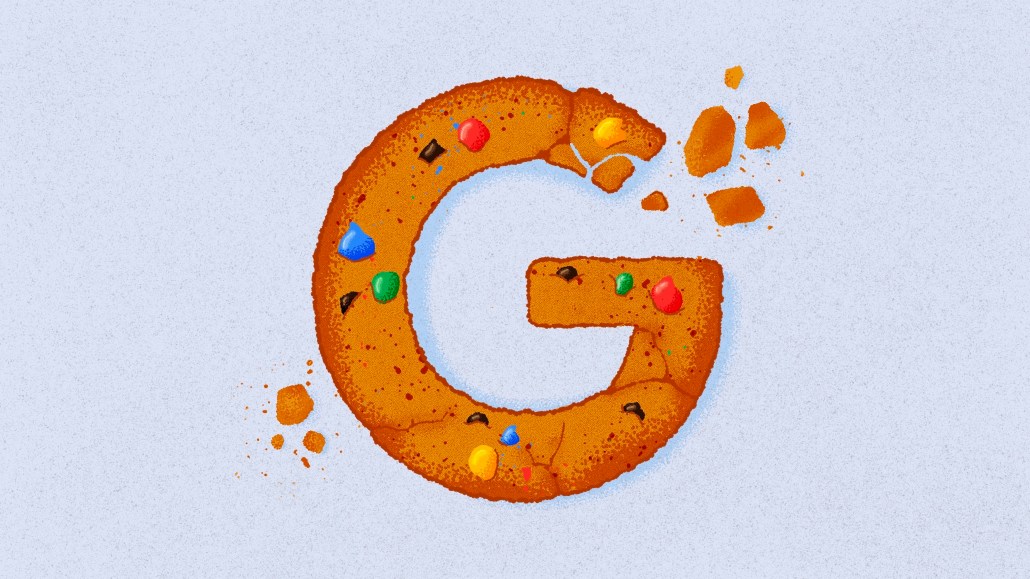Save 50% on a 3-month Digiday+ membership. Ends Dec 5.
Digiday+ Research: Agencies choose contextual targeting over first-party data in post-cookie era

This research is based on unique data collected from our proprietary audience of publisher, agency, brand and tech insiders. It’s available to Digiday+ members. More from the series →
Interested in sharing your perspectives on the media and marketing industries? Join the Digiday research panel.
It seems the third-party cookie’s days are actually numbered now. Google said last week it will deprecate third-party cookies for 1% of Chrome users globally in the first quarter of 2024. And agencies are taking their preparations for a post-cookie world seriously. The vast majority are actively preparing, and most are looking to contextual targeting as the way forward.
This is according to a Digiday+ Research survey of 56 agency professionals in the second quarter of this year.
Digiday’s survey found that the percentage of agencies preparing for the end of the third-party cookie has been steadily increasing over the last two years. In Q1 2021, 62% of agency pros told Digiday that they agreed somewhat or strongly that their businesses were actively preparing for a cookieless future. That percentage grew to 68% in Q3 2021, and again to 71% in Q2 2022, before hitting 73% in Q2 of this year.
At the same time, the percentage of agencies who disagreed that their businesses were actively preparing for the end of the cookie declined steadily. Twenty-five percent of agency pros said they disagreed somewhat or strongly that they were preparing for the death of the cookie in Q1 2021, which fell to 17% in Q3 2021, 15% in Q2 2022 and 11% in Q2 2023.
Still, it’s worth noting that, as of Q2 of this year, more agencies say they agree somewhat that they’re preparing for the death of the cookie than say they agree strongly. More specifically, 41% of agency pros told Digiday they agree somewhat that their businesses are actively preparing, compared with just short of a third (32%) who said they agree strongly. And that 32% is actually down from the 37% who said they agreed strongly they were actively preparing a year ago.
Ad position: web_incontent_pos1
Digiday’s survey found that the majority of agencies who are actively preparing for the end of the third-party cookie are doing so by spending more on contextual targeting campaigns. In Q2, 70% of agency pros told Digiday that is one of the actions their businesses are taking to prepare — a very significant increase from the 47% who said so last year.
This puts contextual targeting well out ahead of the other alternatives agencies are considering using in the place of third-party cookies. Revising measurement and attribution frameworks came in second among agency pros, 52% of whom said their businesses are taking that action. But that is down quite a bit from the 62% who said the same a year ago.
With many more agencies saying they’re spending more on contextual targeting this year over last year, and fewer saying they’re revising measurement and attribution frameworks, it’s clear that agencies have shifted into a clear path beyond cookies that is paved with contextual targeting.
Digiday’s survey found some other big shifts occurred among agencies over the last year when it comes to how exactly they’ll move beyond the third-party cookie.
The percentage of agency pros who said they’re spending more on walled gardens like Google and Facebook rose significantly, from 28% in Q2 of last year to 41% in Q2 of this year. Meanwhile, the percentage of agencies who said they’re using agency-built cookie alternatives fell from 16% last year to just 9% this year — an already small percentage that looks to be getting even smaller.
Ad position: web_incontent_pos2
Interestingly, agencies appear much less interested in first-party data than brands. Last week, we reported that 69% of brand pros said this year they’re investing in technology to acquire more first-party data (making that cookie alternative the most popular option among brands). In comparison, just 39% of agency pros told Digiday the same this year, which is actually a decrease from last year, when 45% said they were investing in technology to acquire more first-party data.
More in Marketing

Ulta, Best Buy and Adidas dominate AI holiday shopping mentions
The brands that are seeing the biggest boost from this shift in consumer behavior are some of the biggest retailers.

U.K. retailer Boots leads brand efforts to invest in ad creative’s data layer
For media dollars to make an impact, brands need ad creative that actually hits. More CMOs are investing in pre- and post-flight measurement.
Ad position: web_bfu



